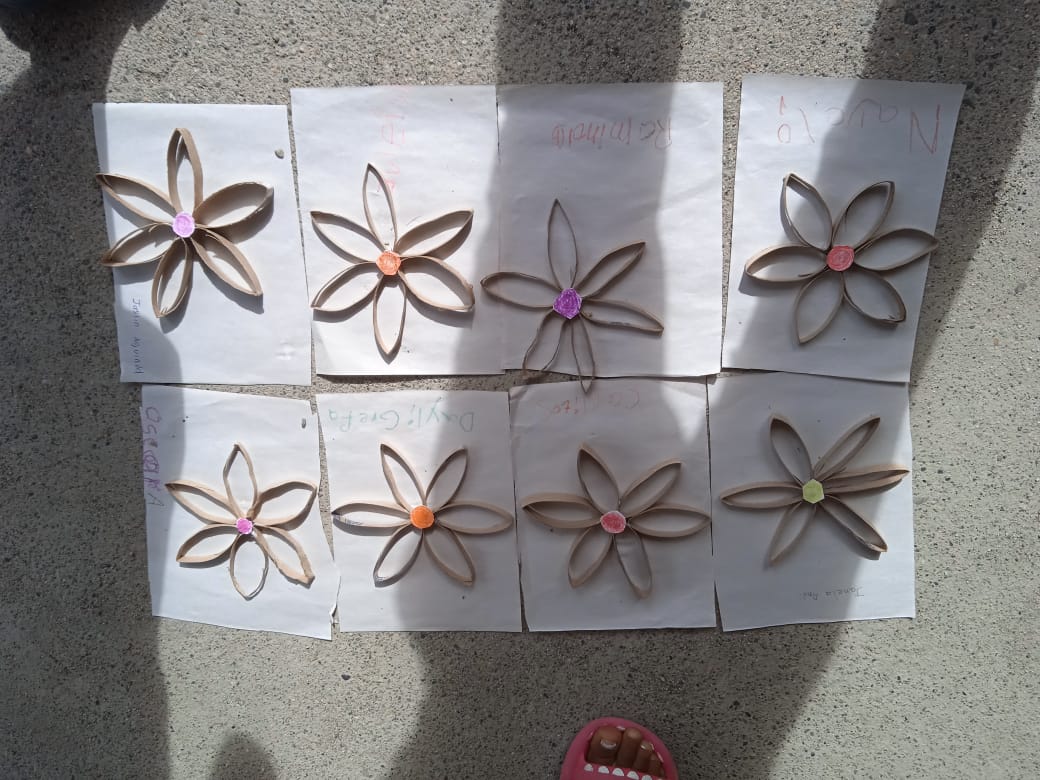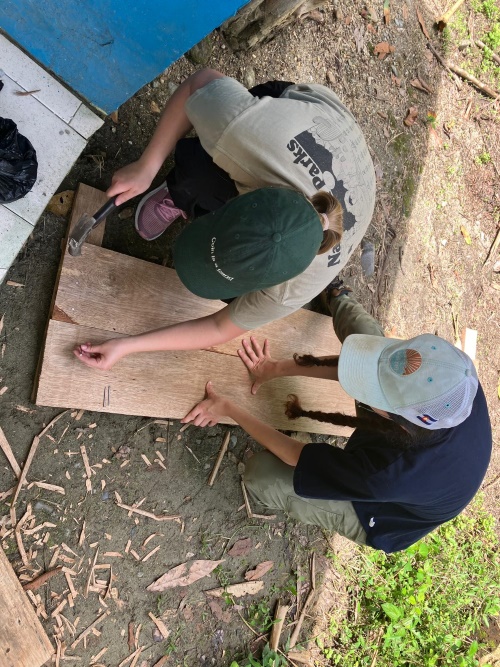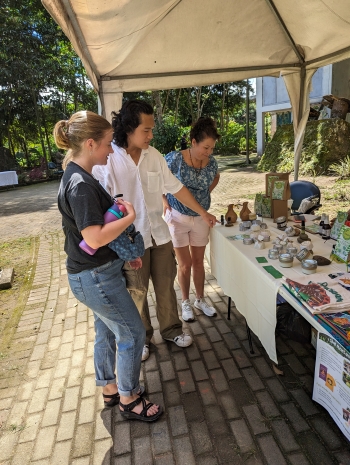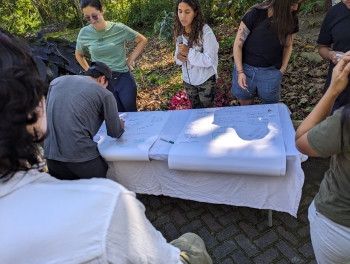Hola from Shandia, Ecuador! My name is Emma Slaymaker, and I am a rising senior at Cornell! This summer I have the opportunity to study abroad with The Manna Project, which works with community members in Shandia to help break cycles of poverty. I discovered this opportunity on Handshake and was immediately drawn to it, in part because of the environmental projects they were advertising and my growing interest in public health and community development. I had the opportunity to study abroad in India sixth block for a course on gender and development and was drawn to the similarities between these community projects in India and Ecuador.
Additionally, as a double major in English and Environmental Justice, I was able to find my perfect niche in this internship. I was ecstatic at the chance to go abroad and expand my knowledge, especially in a place as ecologically diverse as the Amazon Rainforest! I knew that this was going to be such an amazing opportunity to visit an entirely new ecosystem and see what opportunities were in store for me.
After arriving in Ecuador early Sunday morning (6 am, to be exact), I was both excited and exhausted. I had some expectations of what I would be doing in Ecuador, but I knew I had many opportunities in front of me. We spent most of our week doing orientation meetings and learning our way around the Manna Project. The interns (7 in all, ranging in timeline), all live in a house 1.2 km away from Shandia in the town of Talag. While this does entail a walk to work every morning, it also ensures community engagement. The kids especially have no fear of strangers and frequently invite us to play or go swimming at one of the many swimming holes with them. From the start, we have been placed in the center of a caring and tight-knit community here in Talag. It has also encouraged us interns to continuously use and improve our Spanish language skills as very few people here speak English. Even my broken, unadvanced Spanish has been met with patience and understanding. This is one of the biggest things I’ve noticed so far about Ecuador: willingness to talk, listen, and take care of each other. This is especially evident at Manna as well. Although we spent most of the week in preparation work, we were provided with many opportunities to interact with community members and school children. One of these was planning an art lesson, where we made flowers out of recycled paper towel tubes and taught about numbers and pollinators. We will continue to do this weekly, and I am excited to continue brainstorming new art ideas!

We also planned our next week and decided where we wanted to focus our efforts for the duration of our time here. We had our first taste of community development projects as well, focusing mainly on two ecotourism projects. One is fixing bathrooms in the beach (a place frequently visited by White Water Rafting tourists), helping to create new doors and roof!
 The other half of the group worked with a local named Javier in order to create a sendero to his family’s Chakra (a trail to his family farm). They helped clear the trail and carry rocks to line the trail. Ecotourism projects like this allow cultural sites to become accessible and developed for sharing. This can be essential in helping expand the reach of environmental and cultural education and experiences. I hope to continue to work on this project throughout my time here. One of the amazing things about Manna is the freedom that we interns get. We are given contacts and past information, and it is up to us to build connections, continue projects, and even create initiatives of our own. On Sunday, I went with a few other interns who are specifically interested in environmental and agricultural issues to a bee festival. Here, there were vendors and presentations provided regarding information on non-stinging bees and their struggles for survival in the Amazon. We learned about native and non-native bees and the threats to native bees and their longevity.
The other half of the group worked with a local named Javier in order to create a sendero to his family’s Chakra (a trail to his family farm). They helped clear the trail and carry rocks to line the trail. Ecotourism projects like this allow cultural sites to become accessible and developed for sharing. This can be essential in helping expand the reach of environmental and cultural education and experiences. I hope to continue to work on this project throughout my time here. One of the amazing things about Manna is the freedom that we interns get. We are given contacts and past information, and it is up to us to build connections, continue projects, and even create initiatives of our own. On Sunday, I went with a few other interns who are specifically interested in environmental and agricultural issues to a bee festival. Here, there were vendors and presentations provided regarding information on non-stinging bees and their struggles for survival in the Amazon. We learned about native and non-native bees and the threats to native bees and their longevity.


We were able to make contacts here in the pursuit of creating similar projects within the Manna Project and the communities they serve. I am so excited to support this program and see it have the opportunity to grow. Pollinators and natural spaces are things I feel immensely passionate about, and I am excited at the chance to learn more about how their relationship exists in a new setting. In addition, all of the projects being proposed or in action are brought to the community first in order to gauge interest before they are pursued. The bee project in particular would help support a flow of income for women and also support native pollinators through beekeeping practices. It follows in the shoes of the Chicken Project, which we were able to see the completion of this week, providing families with chickens explicitly for eggs. This provides an exponential opportunity for income and food products through the eggs. Seeing projects being finished and making a difference is incredibly inspiring, and I cannot wait to see what I can do in these next four weeks. In true Cornell fashion, I can do anything in 18 days!